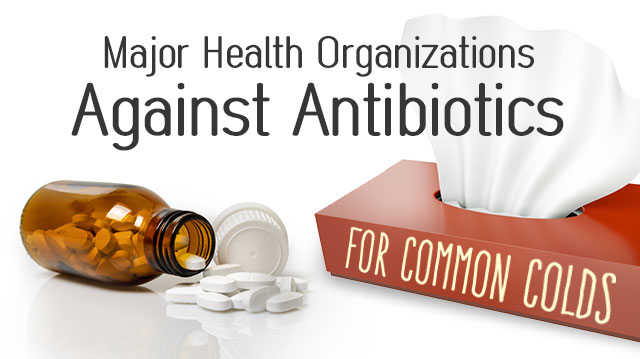In an attempt to reduce the amount of unwarranted antibiotic prescriptions handed out by doctors, the American College of Physicians (ACP) and the Centers for Disease Control and Prevention (CDC) are teaming up on the issue. In a study published this month in the Annals of Internal Medicine, the ACP and CDC urge physicians and health-care practitioners to stop prescribing antibiotics for the common cold.
Clinicians most commonly write antibiotic prescriptions for acute respiratory tract infections (ARTIs), according to the recent study. These ARTIs include common colds, bronchitis without pneumonia, sore throats, and sinus infections. However, the ACP and CDC suggest that antibiotic use for ARTIs is inappropriate, and may be a factor in the prevalence of antibiotic resistant infections, or “superbugs.
It is estimated that more than two million Americans fall ill to antibiotic resistant infections every year, with roughly 23,000 of those cases resulting in death, according to the CDC.
The prescribed use of antibiotics may be spiraling out of control. One in five emergency room visits are due to adverse effects caused by antibiotics, according to the CDC. Antibiotics are also the leading cause for emergency room visits for adverse drug events in children under the age of 18.
Federal health officials suggest that approximately 50 percent of all antibiotic prescriptions given by clinicians are inappropriate. “Reducing overuse of antibiotics for ARTIs in adults is a clinical priority and a High Value Care way to improve quality of care, lower health care costs, and slow and/or prevent the continued rise in antibiotic resistance,” ACP President Wayne J. Riley said in a press release.
The economic cost of antibiotic use is also reaching staggering numbers. Unwarranted antibiotic prescriptions are costing the nation three billion dollars, according to news reports.
Antibiotic resistance is becoming an increasingly worrying issue among health organizations and governments around the world. The World Health Organization (WHO) warns that diseases and infections such as tuberculosis, MRSA and gonorrhoea, among others, are becoming resistant to the drugs commonly used to treat them.
The WHO also found that many common infections are becoming resistant, including “urinary tract infections, pneumonia, [and] bloodstream infections in all regions of the world.”
 In an attempt to combat inappropriate antibiotic prescription and use, the study outlined a “symptomatic prescription pad,” similar to the Symptomatic Relief for Viral Illnesses Prescription Pad developed by the CDC. This is a simple checklist that assists clinicians in discussing the non-antibiotic options available to patients for sign and symptom relief from ARTIs.
In an attempt to combat inappropriate antibiotic prescription and use, the study outlined a “symptomatic prescription pad,” similar to the Symptomatic Relief for Viral Illnesses Prescription Pad developed by the CDC. This is a simple checklist that assists clinicians in discussing the non-antibiotic options available to patients for sign and symptom relief from ARTIs.
The symptomatic prescription pad also comes with a kind of disclaimer that explains the reasons antibiotics are not being prescribed. It states:
“You have been diagnosed with an illness caused by a virus. Antibiotics do not cure viral infections. If given when not needed, antibiotics can be harmful. The treatments prescribed below will help you feel better while your body’s own defenses are fighting the virus.”
Here are some alternative cold remedies that may help with your cold symptoms, without the need for antibiotics:
- Research suggests ginseng can prevent and also reduce cold symptoms by nearly 50 percent.
- Try a warm lemon and turmeric morning elixir with a touch of honey and cinnamon for a boost of antioxidants and anti-inflammatory assistance.
- Ginger tea contains sesquiterpenes, compounds that may help you battle your rhinovirus symptoms in an all-natural way.
- Enlist essential oils to help alleviate cold symptoms. Juniper essential oil contains deoxypodophyllotoxin, a useful compound for upper respiratory tract infections. Mix a few drops in a bowl of hot water and breath in the steam.
What are a few alternative ways you prevent or manage the common cold?
—Stephen Seifert
No comments:
Post a Comment